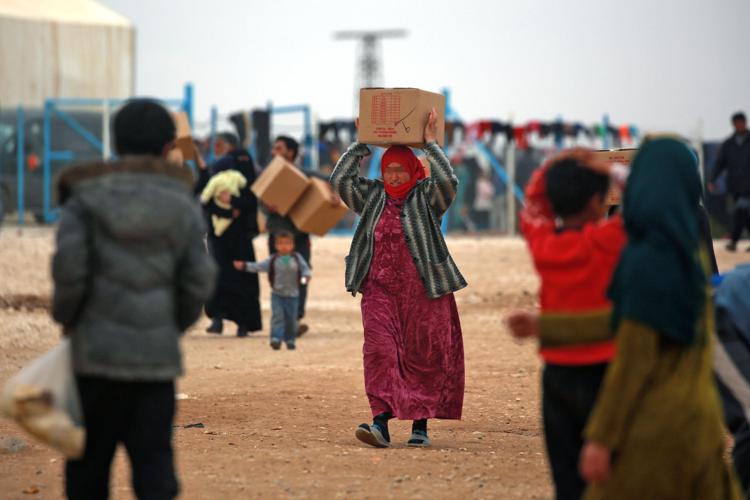

The United Nations refugee agency will continue giving crucial assistance to Syria's vulnerable, whose lives have been made even harder by recession and the COVID-19 pandemic, UNHCR chief Filippo Grandi said Friday in a statement.
“The situation in Syria continues to be very difficult and people need urgent support,” Grandi said after wrapping up a three-day visit to the war-torn country.
“I met people who have returned from displacement to areas still facing many challenges. Their resilience is humbling, but they have urgent humanitarian needs: food prices have skyrocketed, water is seldom available, electricity is scarce and work difficult to find.”
The challenges faced by vulnerable Syrians have been compounded by a severe economic downturn and the coronavirus pandemic, Grandi noted.
“UNHCR is committed to continuing its work to provide humanitarian assistance to those most in need," he said.
Grandi's vist followed a recent spike in COVID-19 infections in the country, where UNHCR continues to ramp up measures to counter the spread of the virus among Syrians and refugees.
The most pressing need is to respond and do more to combat the virus, including expanding the support to quarantine centres, enhancing testing capability and providing protective equipment to frontline and healthcare workers at public and university hospitals and UNHCR-funded community centres, Grandi said.
As part of its COVID-19 response, UNHCR has provided protective equipment to hospitals and health clinics, distributed medication to refugees and built quarantine areas in Rural Damascus, according to the statement.
Grandi visited Dweir quarantine center where UNHCR and humanitarian actors have improved hygiene facilities, repaired patient rooms, provided equipment such as beds, mattresses and sheets and expanded capacity to accommodate up to 3,000 individuals, said the statement.
Grandi also visited the Eastern Ghouta in rural Damascus. Urgent humanitarian needs persist there with limited access to potable water, scarce or unreliable electricity supplies, limited access to health care and soaring prices of basic necessities such as food, fuel and medicine.
The High Commissioner visited a school in Eastern Ghouta that had recently reopened following the COVID-19 lockdowns. Lessons are taking place with up to 40 students per class, and Grandi stressed how difficult it is to enforce physical distancing and ensure basic hygiene such as hand washing given the prevailing conditions.
Grandi concluded his visit by meeting families that have recently returned to their homes after years in displacement. UNHCR has provided support to families in the area so they could make the small repairs necessary to render their homes safe and habitable.
During his visit, Grandi also met senior government officials, NGOs, healthcare workers and Syrian families, said the statement.
Almost ten years into the Syrian conflict between pro-government and rebel forces, 11 million people inside the country are in need of humanitarian assistance and more than 80 per cent live below the poverty line.
UNHCR is seeking to mobilise additional resources for the country’s COVID-19 outbreak and humanitarian response but fears that resources will become scarce as the global pandemic harms countries worldwide.
"This underscores the need for sustained international support for Syrians inside and outside the country," Grandi concluded.